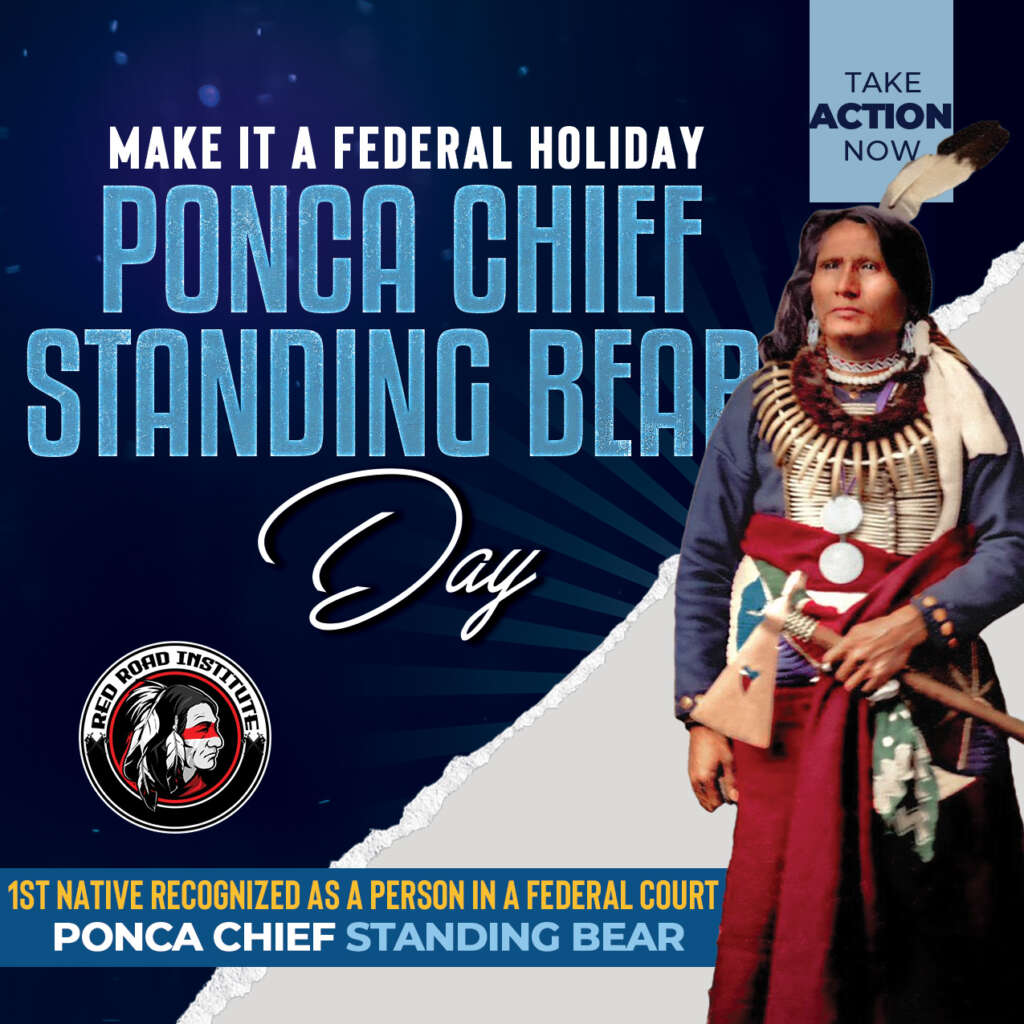
It is time for the United States to honor an indigenous hero and Native American history with a federal holiday.
Ponca Chief Standing Bear was the first Native American judicially granted civil rights under American law and recognized as human.
In 1877, the Ponca Indian tribe was forcibly removed from their Nebraska homeland against their wishes. Very few of the Ponca tribe survived the journey, and most of those who did survive were sick or disabled.
One of the people who died soon after arrival was Chief Standing Bear’s sixteen-year-old son. Not wanting his son buried in a strange country where his spirit might wander forever, Standing Bear started for the Ponca homeland. At the time, it was illegal for tribes to leave the reservation. After a two-month and six-hundred-mile walk, Standing Bear buried his son’s bones along the Niobrara River.
Soon after, The Army arrested Standing Bear and his followers and took them to Fort Omaha, the intention being to return them to Oklahoma. However, General George Crook had compassion for Standing Bear and his followers and ultimately helped Standing Bear secure two prominent Omaha attorneys.
The lawyers filed a federal court application for a writ of habeas corpus, basing their case on the 14th Amendment to the Constitution. The government fought this in court because an Indian was not a “person” under the meaning of the law.
This is where Standing Bear gave the “I am a man” speech. The judge ruled that he was a “person” under the law and free to roam the land. The Supreme Court would later refuse to hear the government’s appeal leaving Standing Bear and his followers free in the eyes of the law.
